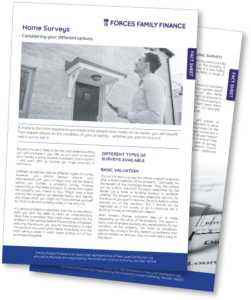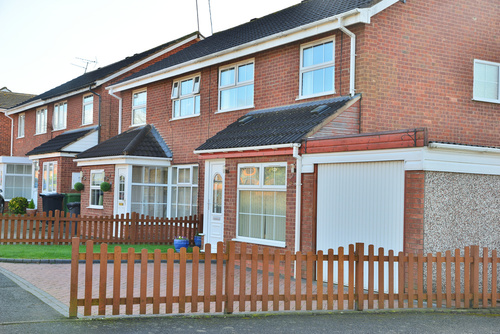

Home & Property Surveys
Considering different options when you’re buying a house
Home & Property Surveys
Considering different options when you’re buying a house
Buying a house is likely to be the most expensive thing you will purchase in your life, so you want to be sure your money is going towards a property that’s worth it – and won’t end up costing you huge amounts in the future.
Different properties require different types of survey. However, you should always discuss your requirements with your surveyor who will be able to advise you further. A property survey involves appointing a Chartered Surveyor to come and inspect the property you intend to buy. They’ll take a look around the property, as detailed below, and identify any issues which you might not have spotted yourself but that could end up being costly in the long run.
If a serious problem is identified, then the survey allows both you and the seller to reach an understanding about how to proceed. That might mean asking for the problem to be rectified before the purchase completes, reducing the amount you pay for the property to take into account any work which needs to be done, or in the most serious cases it might mean pulling out of the purchase altogether.

Different types of home & property surveys
Basic valuation
This isn’t in fact a survey but rather a report prepared after a brief inspection of the property – and solely for the benefit of the mortgage lender. They are carried out by a RICS Valuation Surveyor appointed by the lender (i.e. a bank or building society) to establish whether the property provides adequate security for the amount you want to borrow. Obvious defects will be pointed out in the valuation, but it should not be regarded as a full survey or as a substitute for a Building Survey or Homebuyer’s Report.
Most lenders charge valuation fees on a scale depending on the value of the property. The report is basic, and all lenders disclaim any responsibility for the condition of the property. You have no comeback against the surveyor for any defects or problems that are not picked up, and you may not even see a copy of the report.
Homebuyer’s report
A Homebuyer’s Report is intended to inform you, the buyer, on the soundness or otherwise of the property, and whether it is a suitable purchase at the price agreed. It is more expensive and extensive than the basic valuation. Approved by the Royal institution of Chartered Surveyors (RICS), this survey and valuation covers all accessible parts of the property, but is less comprehensive than a Building Survey, and the final report is shorter and more concise. The report specifies major defects and includes a roof inspection where possible, but does not detail remedial works.
Advice can be given on specific items if required, and if further specialist investigation is thought necessary, this will be stated in the report. The report may also offer you some limited recourse should the surveyor (acting on your behalf, rather than the lender’s) be negligent. Homebuyer’s Reports are most suitable for houses built during the last 80 years and up to approximately 2,000 square feet/185 square metres.
Building survey
(Formerly full structural survey)
This is the most detailed type of survey and is usually required when a full assessment of the property is needed. It is also the most expensive. It is also highly advisable for older properties (pre-1900) or large or unusual buildings.
Surveys of this kind can take many hours to complete and cover all aspects of the property in greater depth than the Homebuyer’s Report. It can also detail remedial works required. You have right of recourse to the Surveyor in the event a defect with the property is subsequently found which would have been there when the original survey was done – for example, a woodworm infestation or rising damp.
Mortgage lenders tend to work with panels of approved surveyors, and it is generally best to allow the lender to instruct their nominated surveyor for the basic valuation that they require. If you would like a home buyer’s report, many lenders will let you request one via them – otherwise, you are free to instruct any survey you need yourself. With any level of survey, if there are potential or actual defects found, the surveyor may suggest you obtain additional specialist reports.
Download our FREE guide to Home Surveys!





